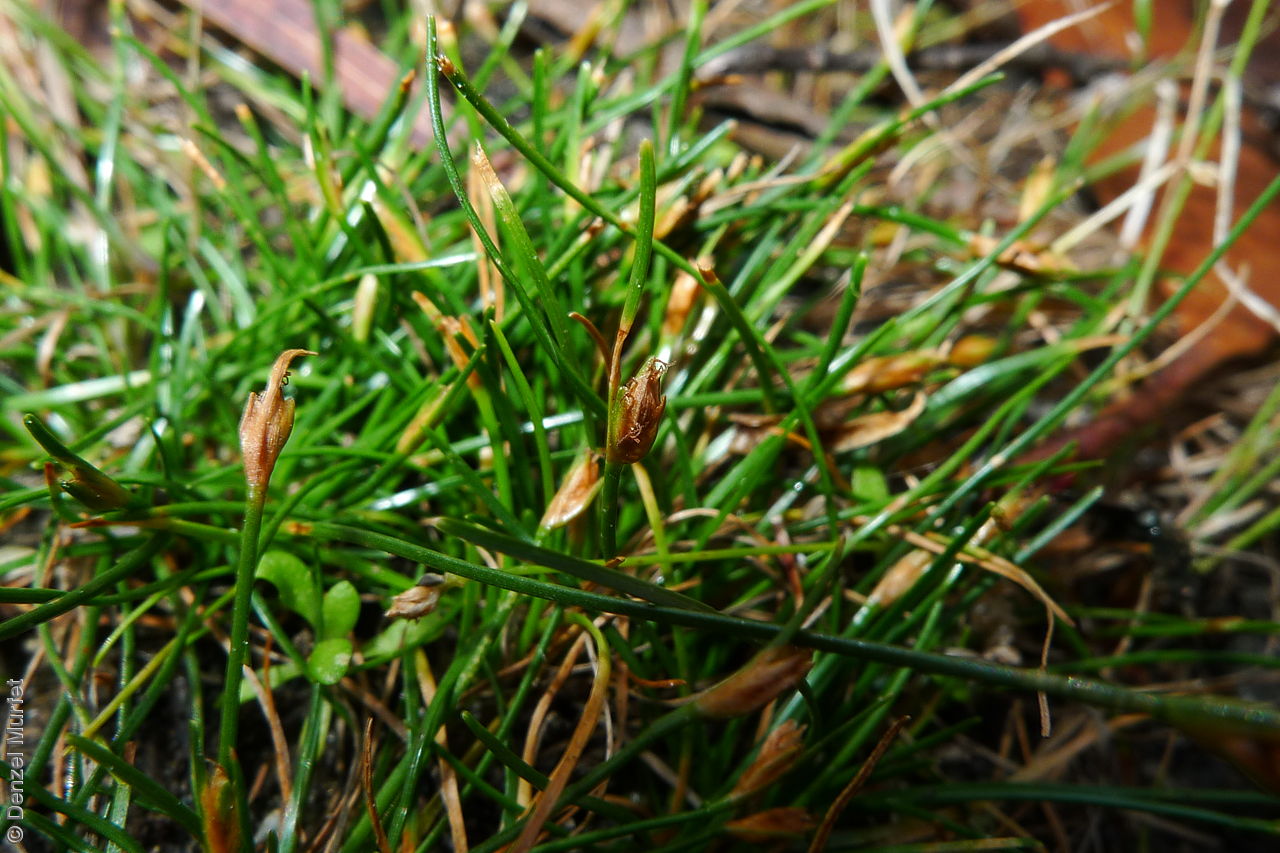
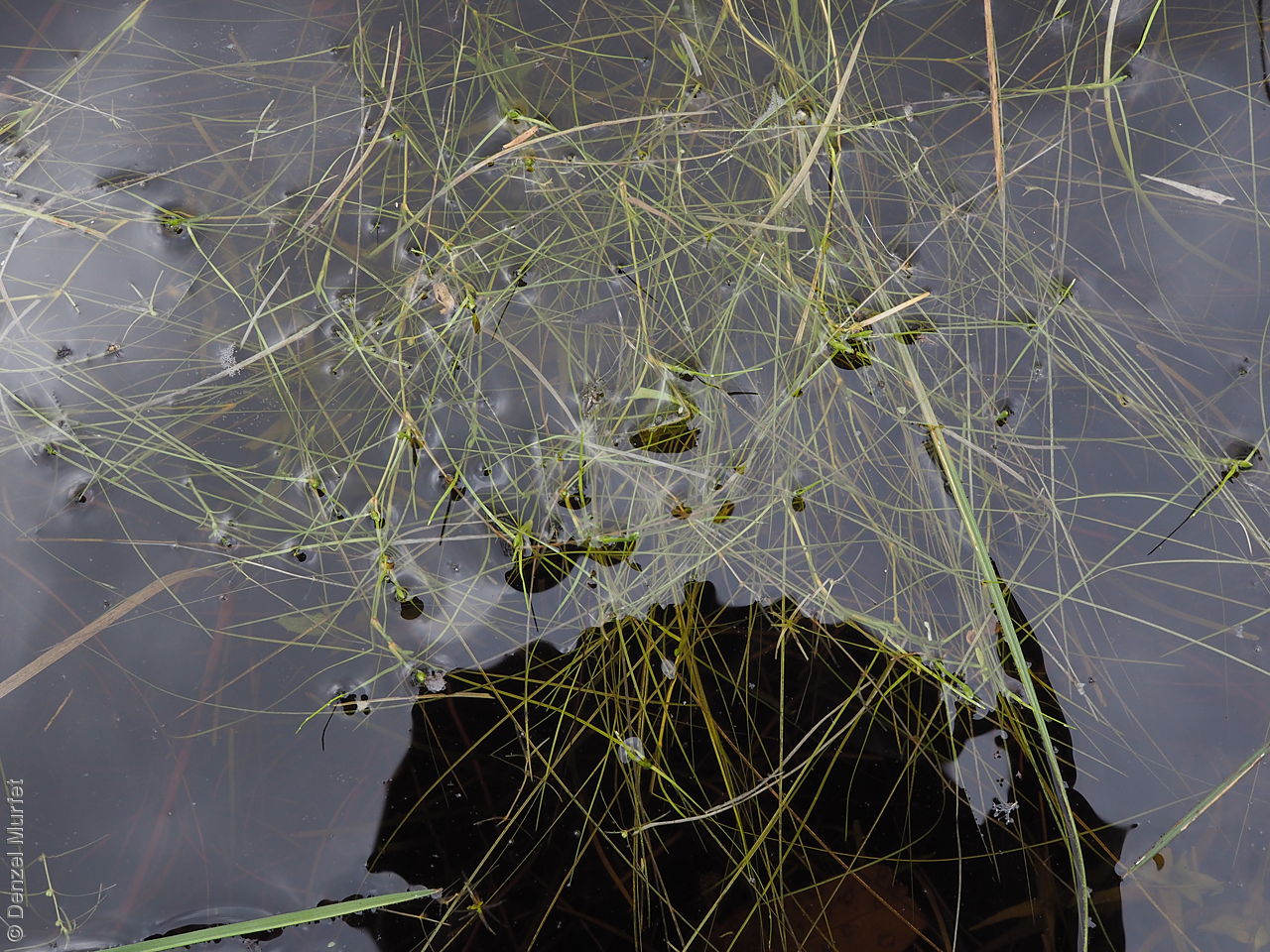
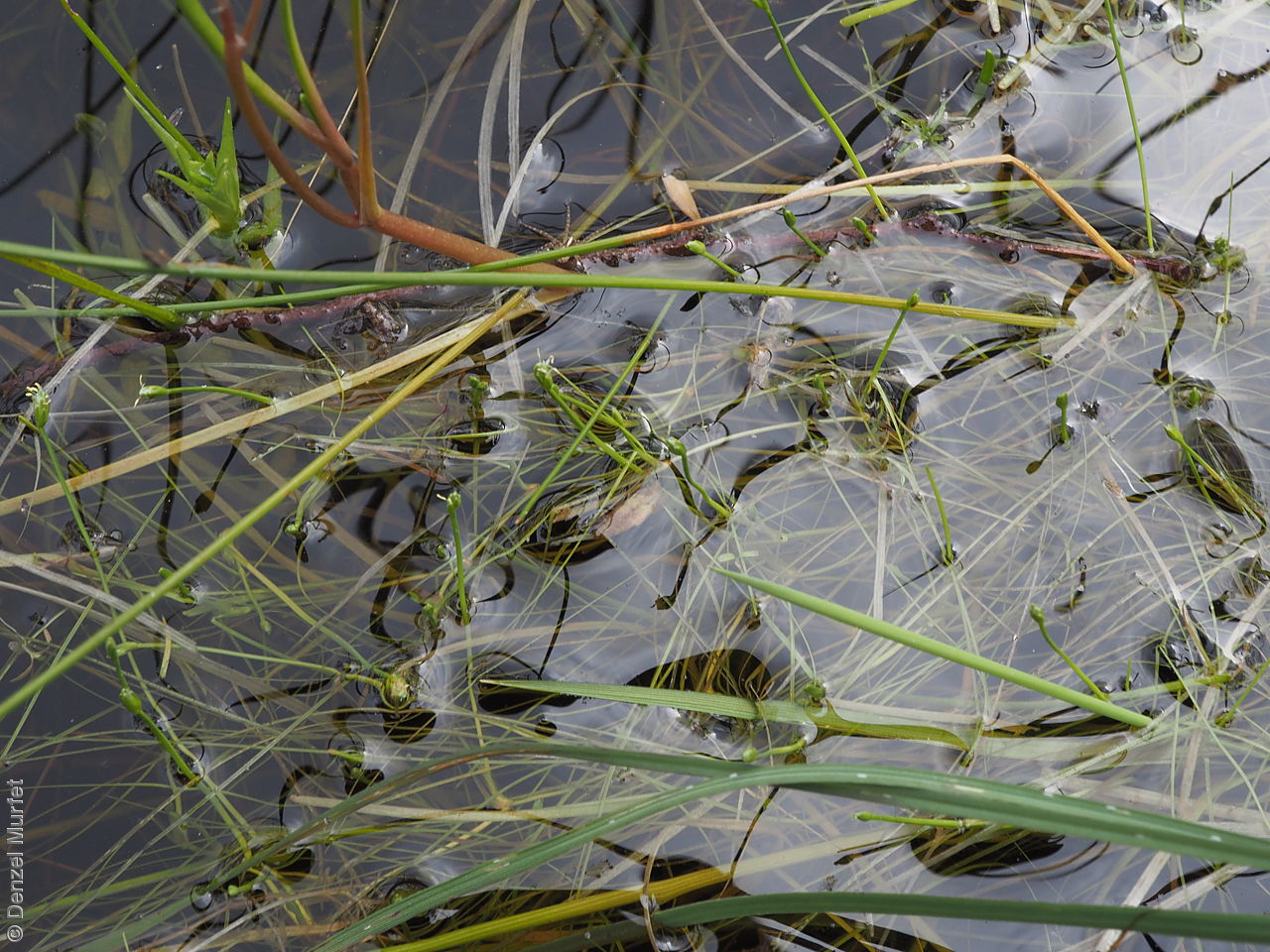


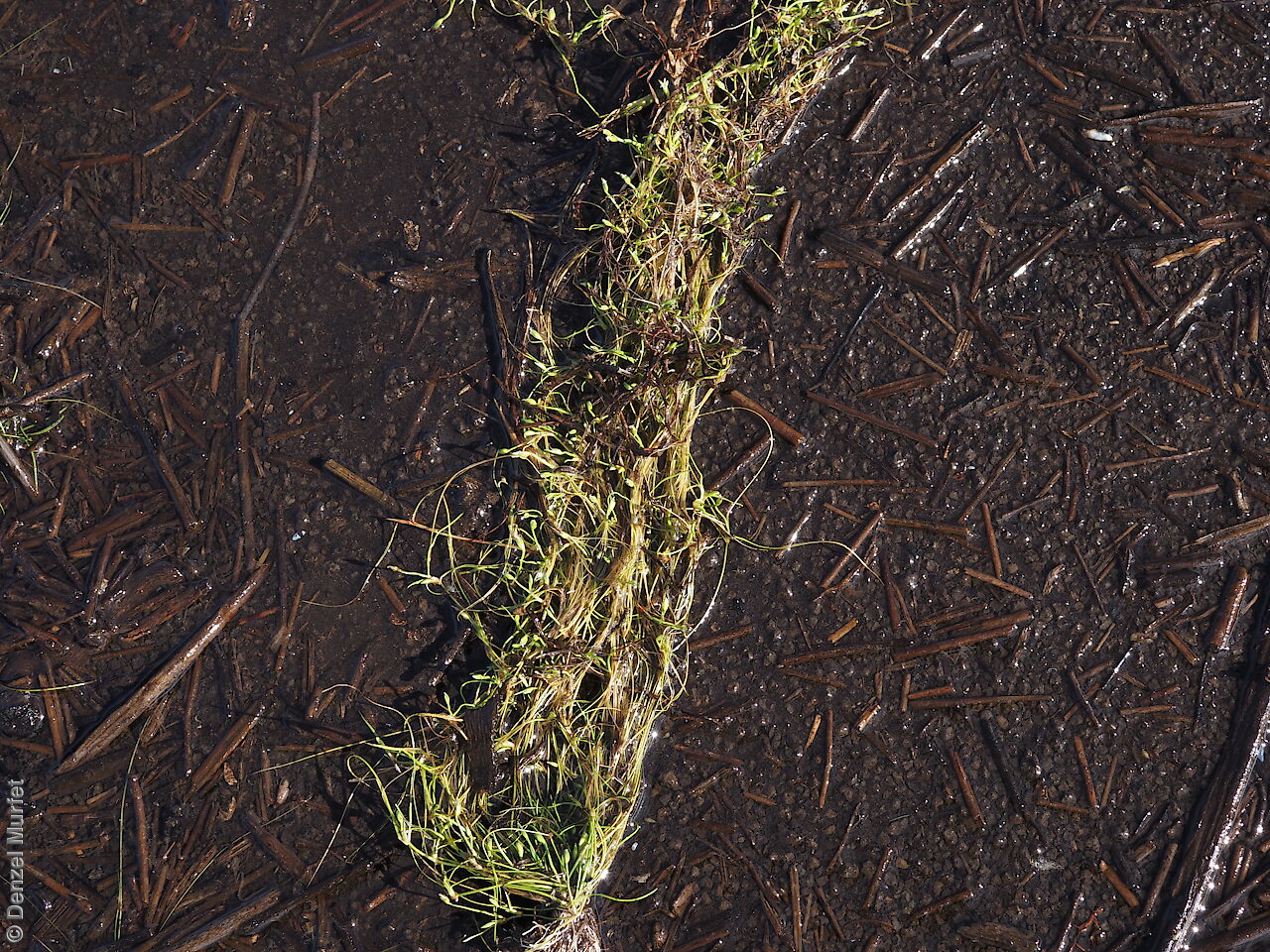
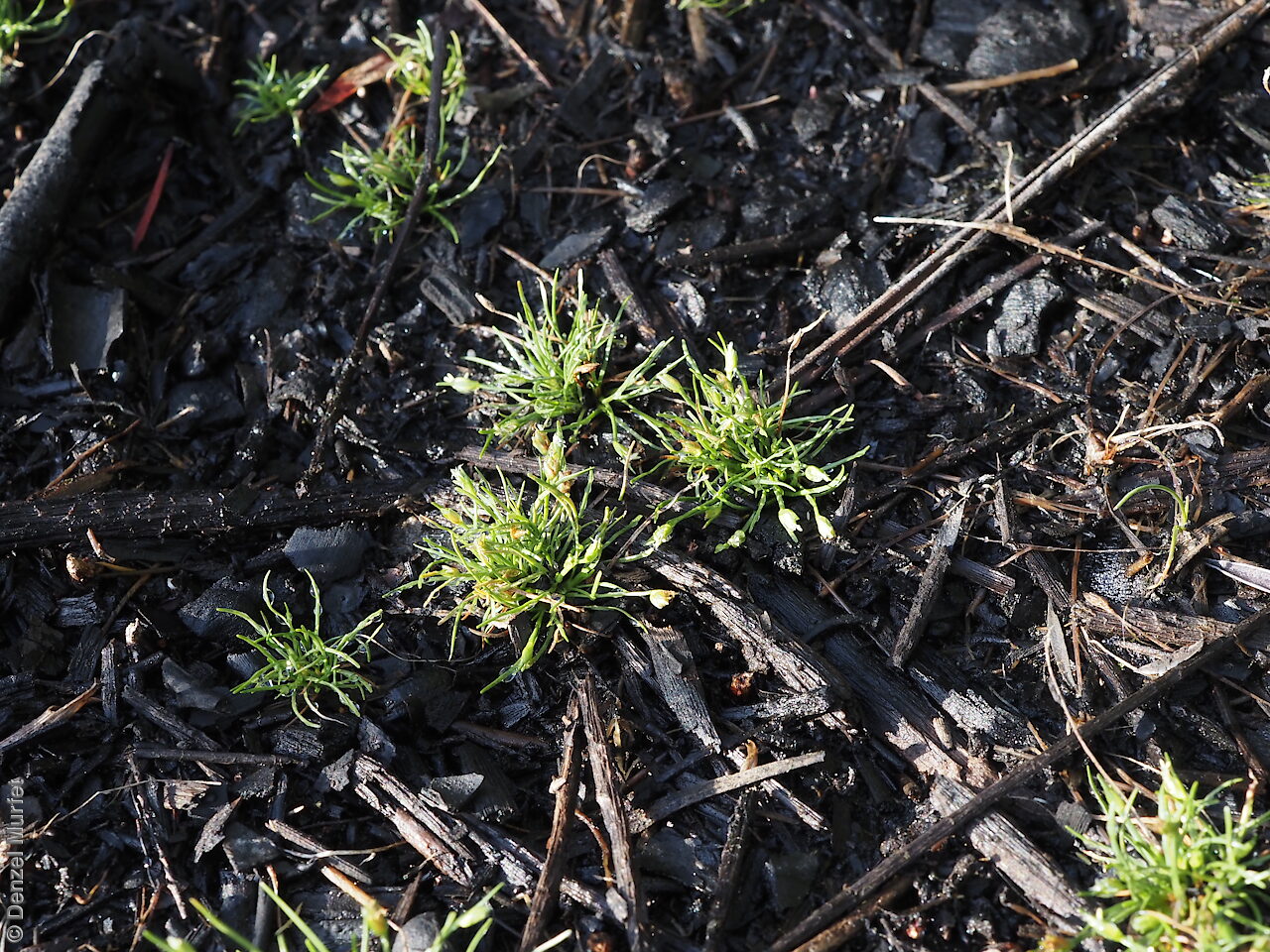
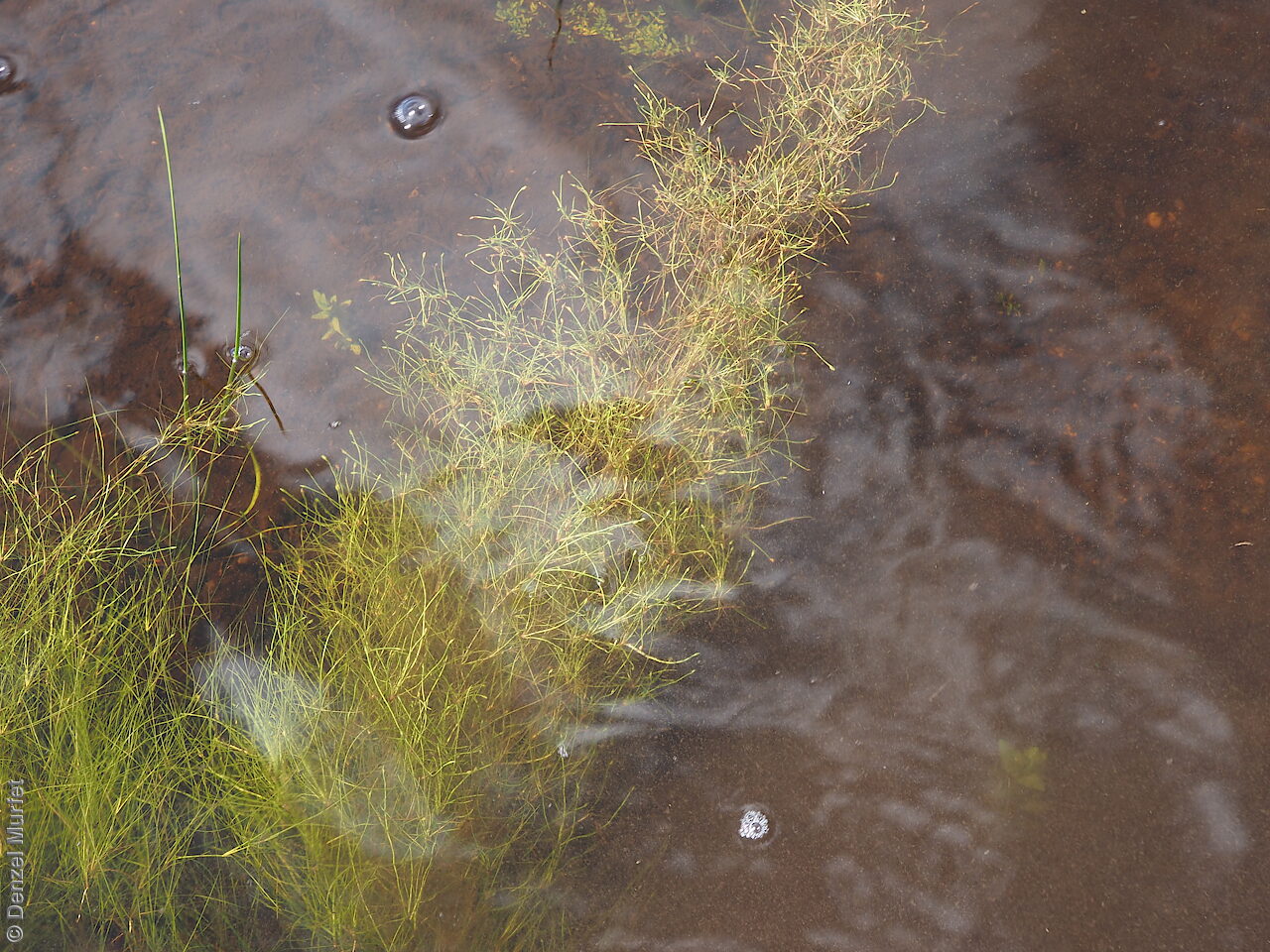


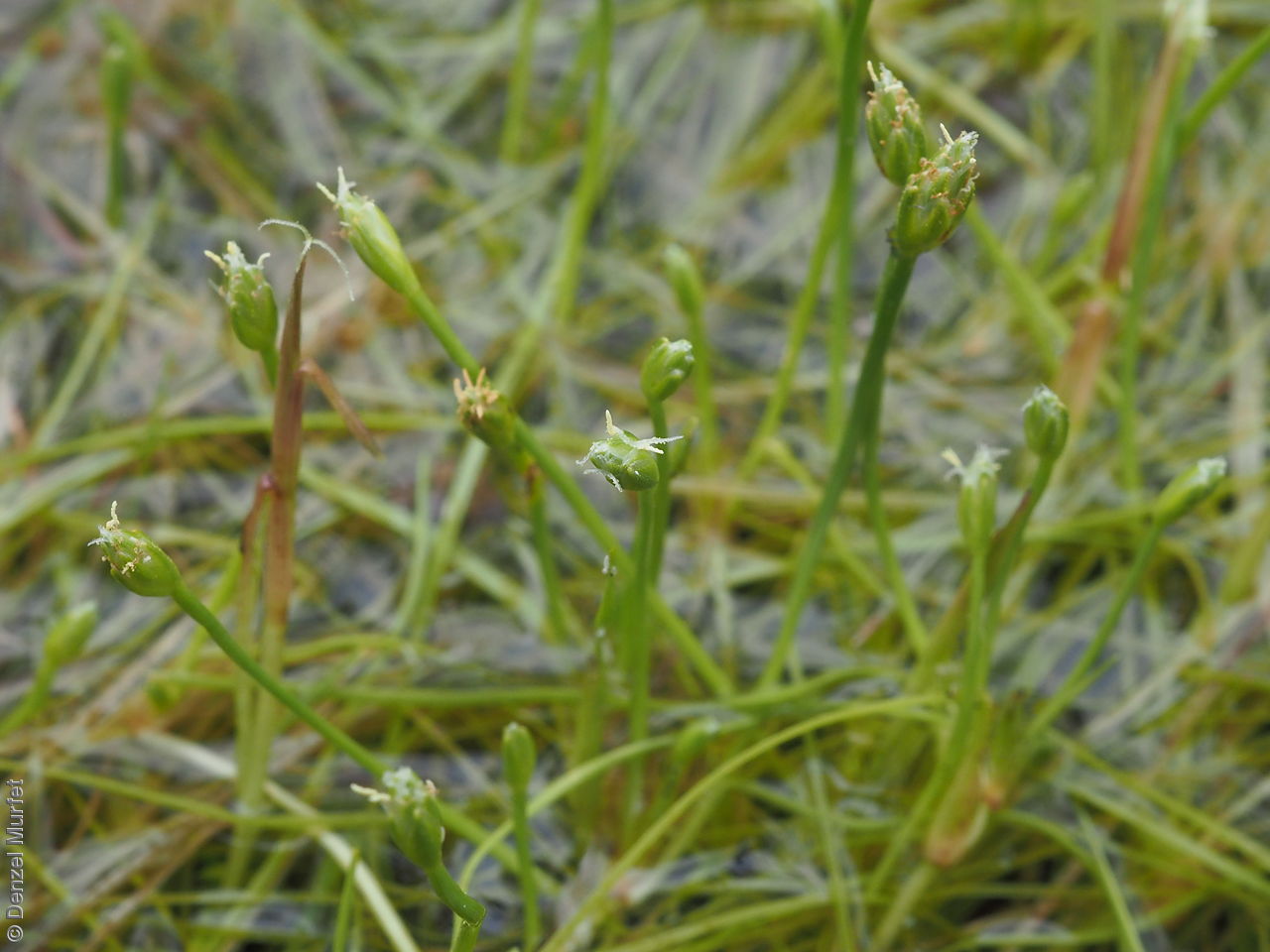
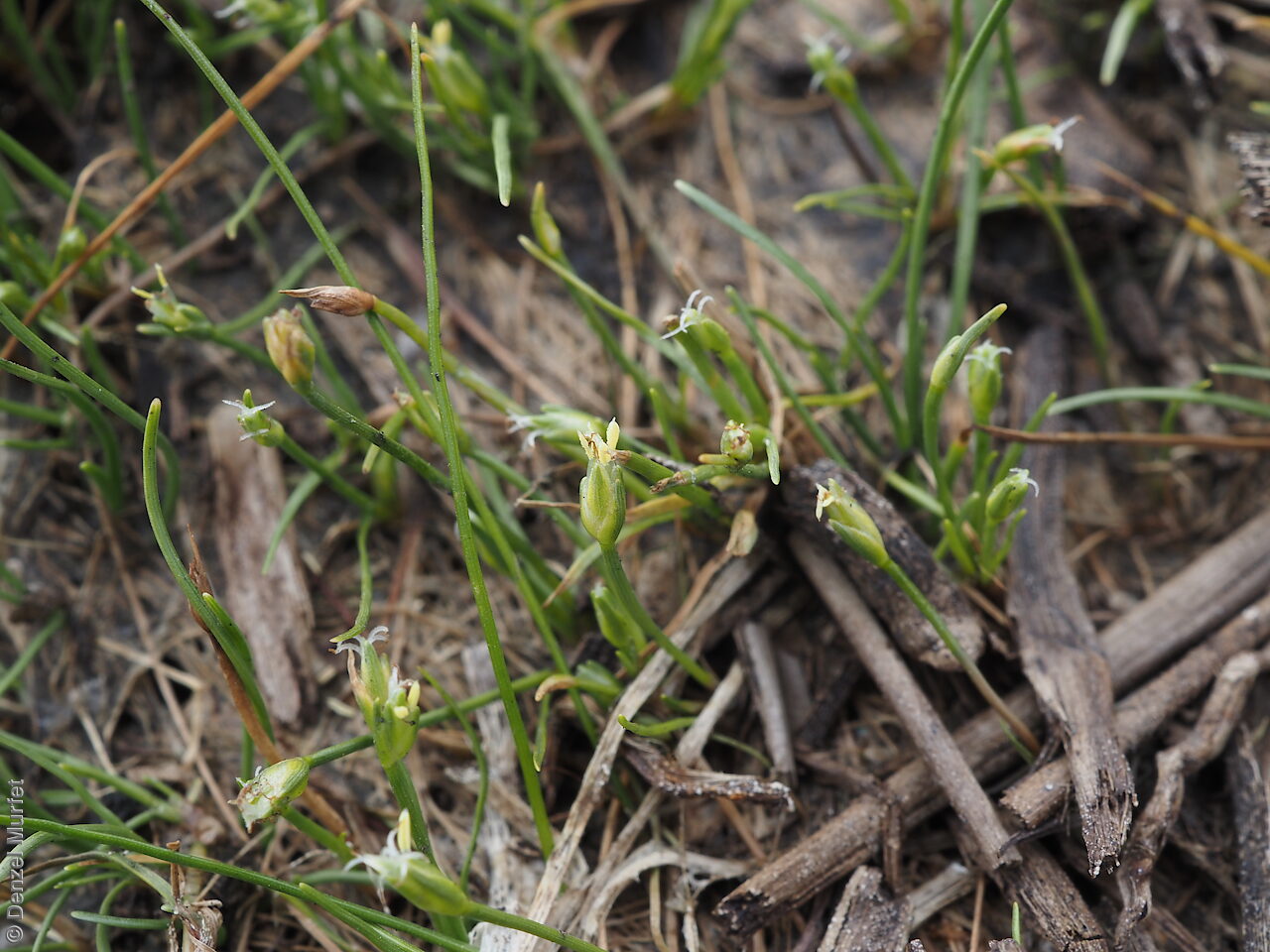
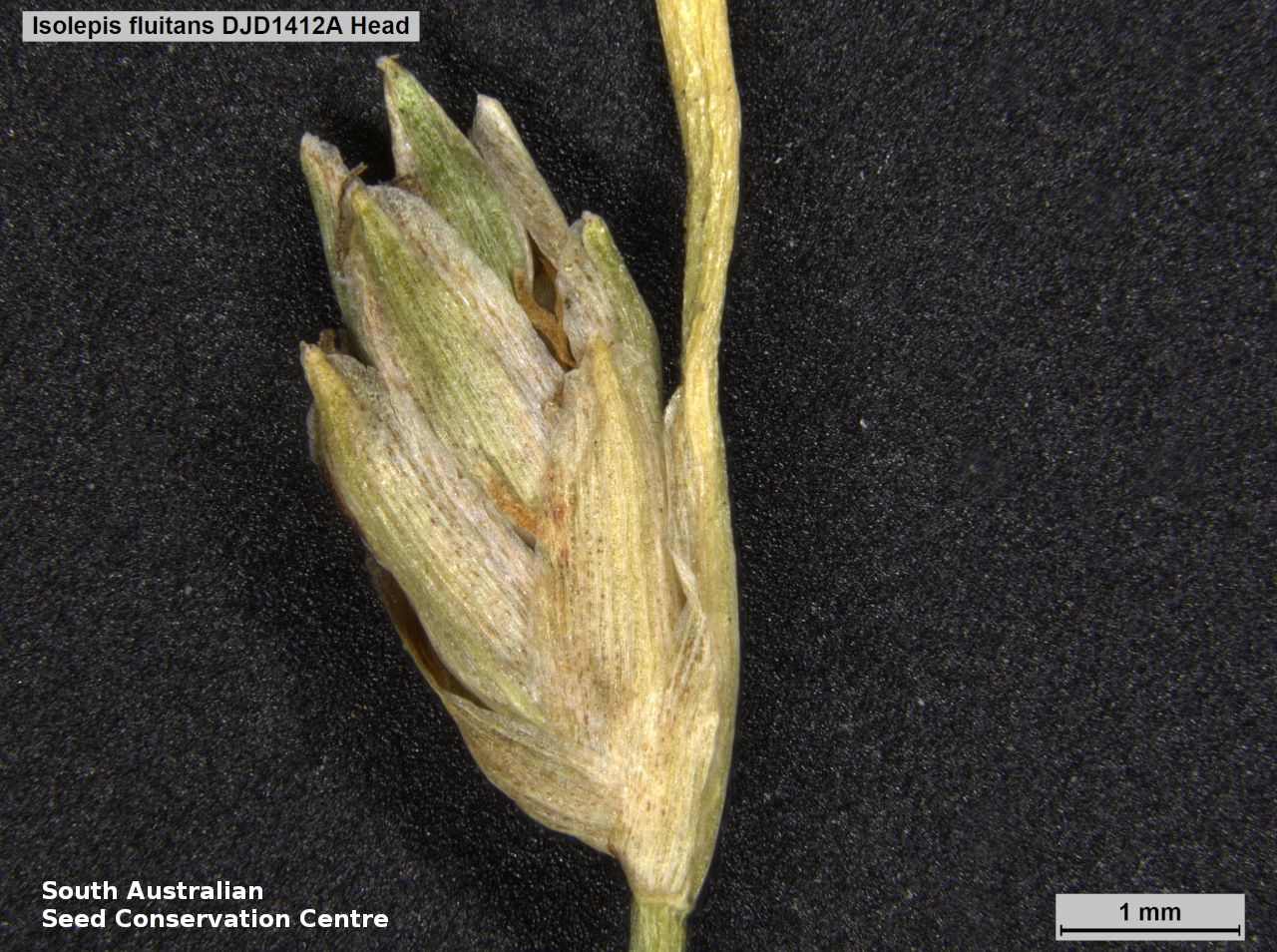
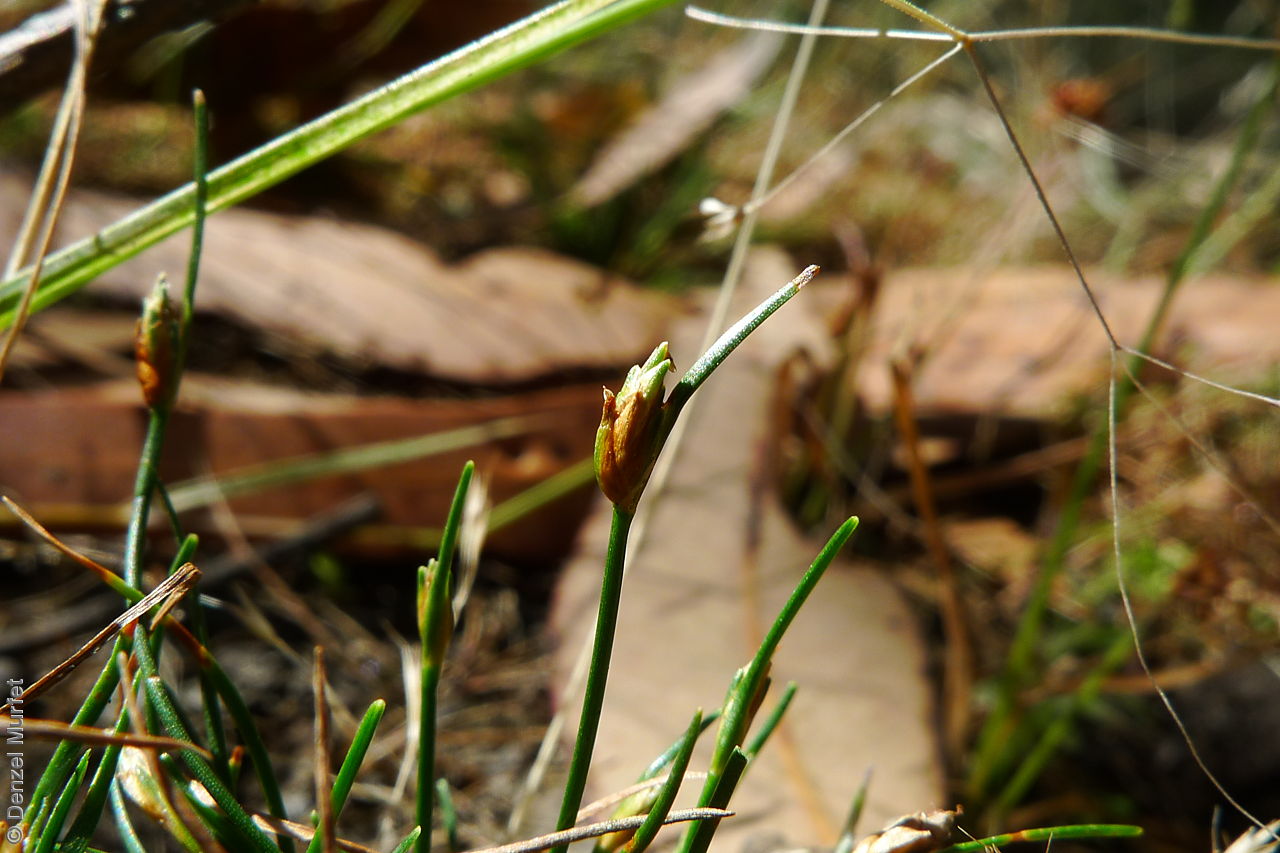

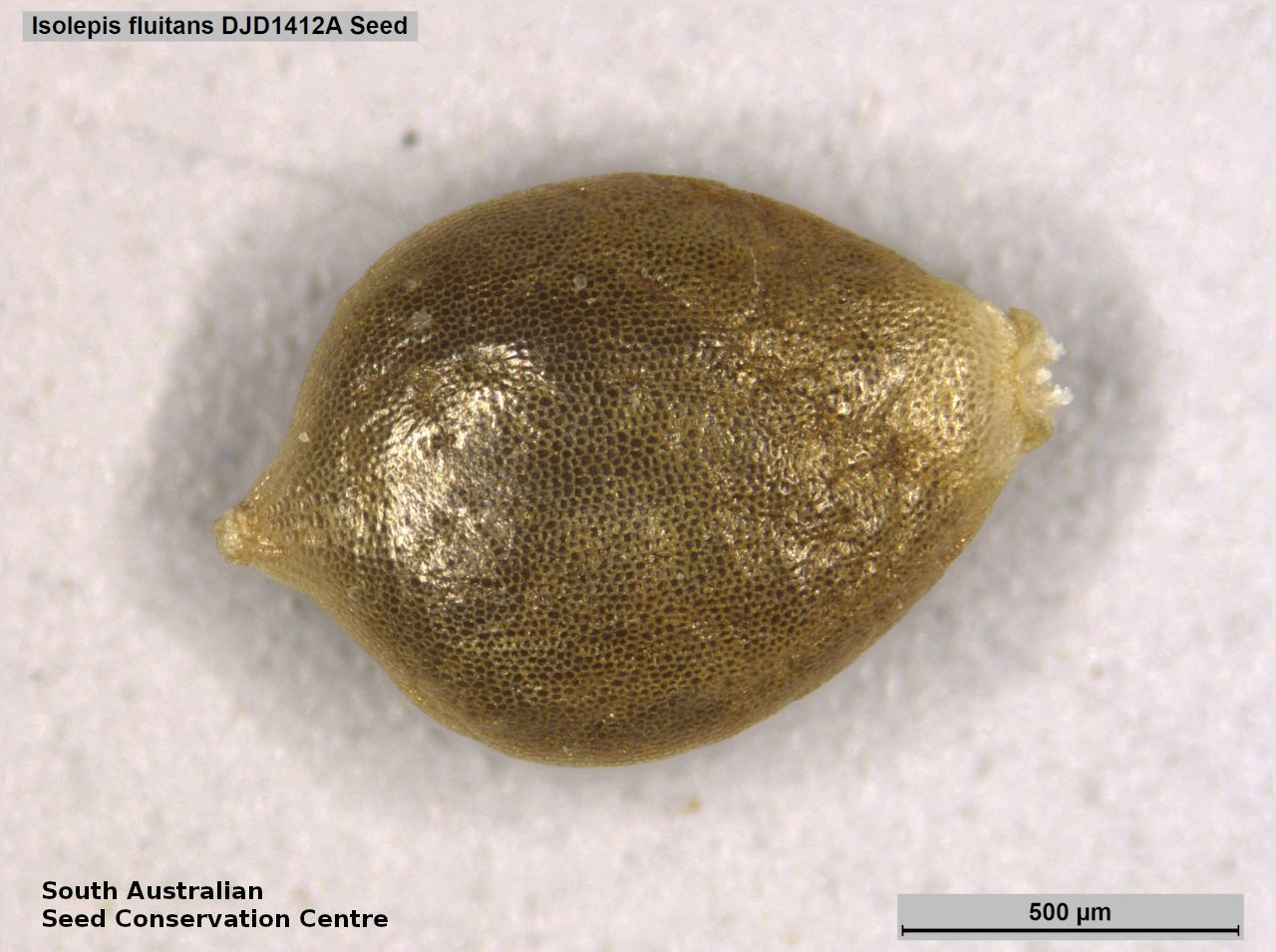


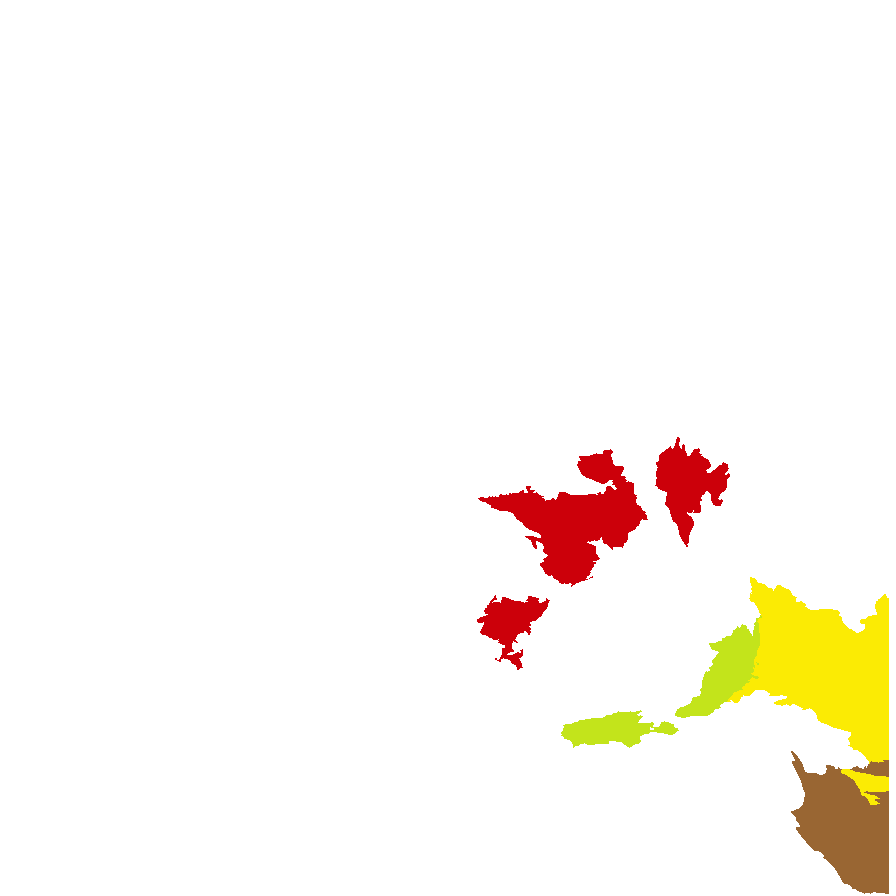
Botanical art
Prior names
Scirpus fluitans
Etymology
Isolepis, from the Greek 'isos', meaning equal and 'lepis', meaning scale, referring to the glumes. Fluitans from the Greek 'fluito', meaning floating, referring to the species' habit.
Distribution and status
Found on Kangaroo Island, Mount Lofty Ranges and the South-east in South Australia growing in swamps and streams. Also found in all States except the Northern Territory. Native. Rare in South Australia. Rare in Queensland. Common in the other States.
Herbarium regions: Eyre Peninsula, Northern Lofty, Murray, Southern Lofty, Kangaroo Island, South Eastern, Green Adelaide
NRM regions: Adelaide and Mount Lofty Ranges, Eyre Peninsula, Kangaroo Island, South Australian Murray-Darling Basin, South East
AVH map: SA distribution map (external link)
Plant description
Slender, aquatic or dry-land perennial sedge. Stems weak, filiform, leafy, submerged and elongated, or creeping and procumbent, or erect and tufted and to 10 cm high. Spikelets solitary, elliptic in outline; strongly flattened, 5–10-flowered (rarely to 15 flowers), 3–5 mm long; involucral bract shorter than to slightly exceeding spikelet; glume-like or with a short thickened appendage. Glumes obtuse, conspicuously numerous-nerved; to 2.8 mm long, straw-coloured with red-brown patches. Flowering between October and February. Fruits are small single dense fruit-head at the end of stems. Seeds are light-brown ovoid seed to 1.3 mm long and 0.8 mm wide with a fine reticulate surface. Seed embryo type is capitate.
Seed collection and propagation
Collect seeds between November and April. Collect fruits by picking off the mature heads; those turning brown and come-off easily. Place the heads in a tray and leave to dry for one to two weeks. Then rub the heads with a rubber bung to dislodge the seeds. Use a sieve to separate any unwanted material. Be careful, as the seeds are very small. Seeds are light brown and hard. Store the seeds with a desiccant such as dried silica beads or dry rice, in an air tight container in a cool and dry place.
| Location | No. of seeds (weight grams) | Number of plants | Date collected | Collection number Collection location | Date stored | % Viability | Storage temperature |
|---|---|---|---|---|---|---|---|
| BGA | 21,000 (4.17 g) | 50 | 3-Dec-2007 | RJB74992 Southern Lofty | 19-Sep-2008 | 80% | -18°C |
Number of plants: This is the number of plants from which the seeds were collected.
Collection location: The Herbarium of South Australia's region name.
% Viability: Percentage of filled healthy seeds determined by a cut test or x-ray.